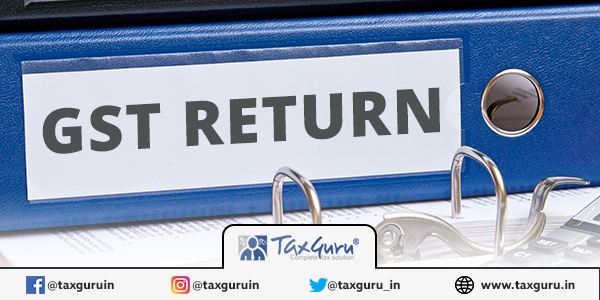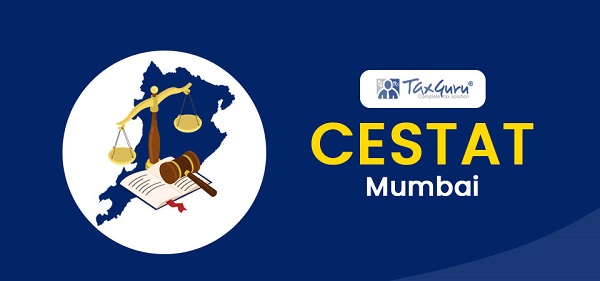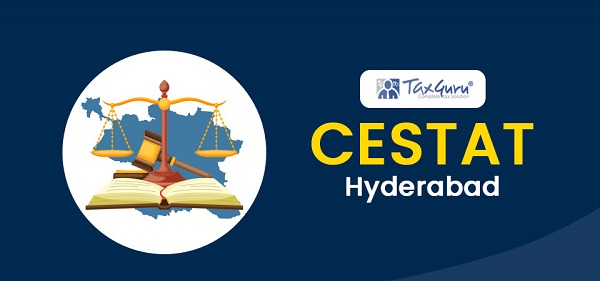Case Law Details
JUDGMENT M. Katju and Onkareshwar Bhatt, JJ.
1. Heard Sri Ashok Kumar and Sri Kunwar Saksena learned counsel for the petitioners, Sri Pradeep Kumar Gupta, additional chief standing counsel and Sri R. D. Gupta learned standing counsel.
2. Writ Petition No. 485 of 2000 had been filed initially for a mandamus directing the respondents to release the truck Nos. M.P. 09KA/2467, M. P. 06/8045 and M. P. 09/1589 which were lying in the custody of respondents since January 3 and 5. 2000 respectively.
3. In this petition, we had passed an order on 24.5.2000 for releasing of the aforesaid trucks on the petitioners’ furnishing security other than cash and bank guarantee to the satisfaction of respondent No. 2. We are informed by the learned counsel for the petitioners that in pursuance of the interim order the aforesaid, trucks have been released in favour of the petitioners.
4. Learned counsel for the petitioners has submitted that in fact the respondents had no Jurisdiction to seize the trucks and he has claimed damages. The submission of the learned counsel for the petitioners is correct. It has been repeatedly held by several Division Benches of this Court that trucks cannot be seized under the U. P. Trade-tax Act e.g., in the case of M/s. D. B. Timber Merchant, Ballia v. Commissioner of Sales-tax and another, 1992 UPTC 18, M/s. M. S. Freight Carriers and another v. Sales Tax Officer, Check Post, Ghaziabad, 1992 UPTC 273, M/s. Freight Carriers of India, Calcutta v. Deputy Commissioner (Executive), Sales Tax, Ghaziabad and others, 1992 UPTC 604, etc.
5. It has been held consistently by this Court that there is no power in the U. P. Sales-tax Act to seize the trucks, and the authorities can only seize the goods, not the truck,
6. In Lucknow Development Authority v. M. K. Gupta, AIR 1994 SC 787 (Para 8), the Supreme Court has observed as under :
“The administrative law of accountability of public authorities for their arbitrary and even ultra vires actions has taken many strides. It is now accepted both by this Court and English Courts that the State is liable to compensate for loss or injury suffered by a citizen due to arbitrary actions of its employees. In State of Gujarat v. Memon Mahomed Haji Hasam, AIR 1967 SC 1885, the order of the High Court directing payment of compensation for disposal of seized vehicles without waiting for the outcome of decision in appeal was upheld both on principle of bailee’s legal obligation to preserve the property intact and also the obligation to take reasonable care of it to return it in same condition in which it was seized and also because the Government was, bound to return the said property by reason of its statutory obligation or to pay its value if it had disabled itself from returning it either by its own act or by act of its agents and servants’. It was extended further even to bona fide action of the authorities if it was contrary to law in Lala Bishambar Nath v. Agra Nagar Mahapalika, Agra. AIR 1973 SC 1289. It was held that where the authorities could not have taken any action against the dealer and their order was invalid, ‘it is immaterial that the respondents had acted bona fide and in the interest of preservation of public health. Their motive may be good but their orders are illegal. They would accordingly be liable for any loss caused to the appellants by their action.’ The theoretical concept that the King can do no wrong has been abandoned in England itself and the State is now held responsible for tortuous act of Its servants. The first Law Commission constituted after coming into force of the Constitution on liability of the State in Tort, observed that the old distinction between sovereign and non-sovereign functions should no longer be invoked to determine liability of the State. Friedmann observed, “It is now increasingly necessary to abandon the lingering fiction of a legally indivisible State, and of a feudal conception of the Crown, and to substitute for it the principle of legal liability where the State either directly or through incorporated public authorities, engages in activities of a commercial, industrial or managerial character. The proper test is not an Impracticable distinction between governmental and non-governmental function, but the nature and form of the activity in question.
Even M/s. Kasturi Lai Ralia Ram Jain v. State of Uttar Pradesh, AIR 1965 SC 1039, did not provide any immunity for tortuous acts of public servants committed in discharge of statutory function if it was not referable to sovereign power. Since house construction or for that matter any service hired by a consumer or facility availed by him is not a sovereign function of the State the ratio of Kasturi Lal (supra) could not stand in way of the Commission awarding compensation. We respectfully agree with Mathew, J.. in Shyam Sunder v. State of Rajasthan, (1974) 1 SCC 690 : AIR 1974 SC 890, that it is not necessary, ‘to consider whether there is any rational dividing line between the so-called sovereign and proprietary and commercial functions for determining the liability of the State’. In any case the law has always maintained that the public authorities who are entrusted with statutory function cannot act negligently. As far back as 1878 the law was succinctly explained in Geddis v. Proprietors of Bann Reservoir, (1878) 3 App Cas 430 thus.
“I take it, without citing cases, that it is now thoroughly well established that no action will lie for doing that which the Legislature has authorised, if it be done without negligence, although it does occasion damage to anyone ; but an action does lie for doing what the Legislature has authorised, if if be done negligently.”
In the same decision, the Supreme Court in para 11 observed as under :
“Today the issue thus is not only of award of compensation but who should bear the brunt. The concept of authority and power exercised by public functionaries has many dimensions. It has undergone tremendous change with passage of time and change in socio-economic outlook. The authority empowered to function under a Statute while exercising power discharges public duty. It has to act to subserve general welfare and common good. In discharging this duty honestly and bona fide loss may accrue to any person. And he may claim compensation, which may in circumstances be payable. But where the duty is performed capriciously or the exercise of power results in harassment and agony then the responsibility to pay the loss determined should be whose? In a modern society no authority can arrogate to itself the power to act in a manner which is arbitrary. It is unfortunate that matters which require immediate attention linger on and the man in the (street is) made to run from one end to other with no result. The culture of window clearance appears to be totally dead. Even in ordinary matters a common man who has neither the political backing nor the financial strength to match the inaction in public oriented departments gets frustrated and it erodes the credibility in the system. Public administration, no doubt involves a vast amount of administrative discretion which shields the action of administrative authority. But where it is found that exercise of discretion was mala fide and the complainant is entitled to compensation for mental and physical harassment then the officer can no more claim to be under protective cover. When a citizen seeks to recover compensation from a public authority in respect of, injuries suffered by him for capricious exercise of power and the National Commission finds it duly proved then it has a statutory obligation to award the same? It was never more necessary than today when even social obligations are regulated by grant of statutory powers. The test of permissive form of grant are over. it is now imperative and implicit in the exercise of power that it should be for the sake of society. When the Court directs payments of damages or compensation against the State the ultimate sufferer is the common man. It is the tax payers’ money which is paid for inaction of those who are entrusted under the Act to discharge their duties in accordance with law. It is, therefore, necessary that the Commission when it is satisfied that a complainant is entitled to compensation for harassment or mental agony or oppression, which finding of course should be recorded carefully on material and convincing circumstances and not lightly, then it should further direct the department concerned to pay the amount to the complainant from the public fund immediately but to recover the same from those who are found responsible for such unpardonable behavior by dividing it proportionately where there are more than one functionaries.”
7. On the strength of the above decisions, the learned counsel for the petitioners has urged that damages should be awarded to the petitioners since their vehicles were detained for about 5 months from January 3, 2000 to the end of May, 2000 and in fact they were released only after the interim order dated 24.5.2000.
8. When the law is settled that the authorities cannot detain and seize the vehicle, we fail to understand how the petitioners’ vehicles have been detained for 5 months without any sanction of law. The action of the respondent is clearly mala fide in law. Several cases are coming up before us where we find that vehicles have been seized for long periods by the Trade Tax authorities although the law has been settled long time back that there is no power in the Trade Tax authorities to do so.
9. The learned standing counsel has relied on Rule 84 (1) of the U. P. Trade-tax Rules, which states that the officer empowered under Section 13 or 13A or under Rule 3A or 4 may stop the vehicle and keep it stationary as long as required by such officer. In our opinion, Rule 84 must be read as a whole and it cannot be read in part. The purpose of Rule 84 is to see that there is no evasion of trade-tax and hence it permits inspection of goods and detention of goods where the officer concerned is prima Jade of the opinion that tax is being evaded and the law is being infringed.
10. So far as the stopping of the vehicle is concerned, in our opinion. this can only be for the purposes of either inspection of goods or unloading the goods from the vehicle, This act should not take a couple of hours or so.
11. In our opinion. Rule 84 (1) does not permit the trade-tax authorities to stop or detain the vehicles for a period longer than what is required for inspection of the goods or unloading of the goods. This, in our opinion, is a correct and reasonable interpretation of Rule 84 (1). In the present case, the vehicles were detained for more than 5 months which was clearly illegal as held by various decisions of this Court, referred to above. Earlier this Court in such cases for wrong and illegalities committed by public servants relegated the petitioners to the remedy of filing a civil suit for damages, but in exceptional cases the Courts have granted damages also in writ jurisdiction e.g., in Hindustan Petroleum Corporation Ltd. and another v. Dolly Dass, JT 1999 (3) SC 61.
12. In our opinion, the time has come when these illegalities by the authorities of detaining and seizing the vehicles must be strongly checked, otherwise ihe law will continue to be violated by such authorities.
13. In connected similar Writ Petition No. 355 of 2000. Hindustan Transport Agency v. State of U. P. and another, Sri Kumvar Saksena, learned counsel for the petitioner invited our attention to Anncxure-2 to the writ petition, where the Sales-tax authorities, who seized the vehicles on 4.4.2000 directed on the same day that the petitioner’s vehicle is not only detained but the petitioner has to arrange for security of the goods and vehicle, vide Annexurc-2. The petitioner made representation vide Annexures-5 and 6 praying that the vehicle be released and submitted that the petitioner was suffering daily loss of Rs. 4,000 due to detention of the vehicle. However, the vehicle was only released in pursuance of the interim order dated 21.4.2000 on 25.4.2000.
14. We were inclined to grant compensation to the petitioners in these cases instead of relegating the petitioner to file civil suits as we want to slop the illegal practice of detaining and seizing of the vehicles by the U. P. trade-tax authorities. Everyone knows that a civil suit often lakes 10 years or more to decide, and hence we are not relegating the petitioner to that remedy. However. Sri Pradeep Kumar Gupta, learned additional chief standing counsel requested that he will himself speak to the Commissioner, Trade-tax. U. P. and convey the displeasure of this Court, and the Commissioner will ensure that these illegalities do not occur in future. We accordingly direct the Commissioner, Trade-tax to charge-sheet the officials who had committed these illegalities and proceed department ally against them. The Commissioner shall also grant proper compensation to the petitioners in both these cases (commensurate to the loss they have suffered) preferably within two months from the date of production of a certified copy of this order in accordance with law. The Commissioner shall also issue instructious to all Trade-tax authorities forthwith that such illegalities must stop immediately.
15. Both the petitions are disposed of with the aforesaid observations. The Registrar General of this Court shall send a copy of this judgment to the Principal Secretary. Institutional Finance (Trade-tax). U. P., Lucknow who in turn will forward it to all the concerned trade-tax authorities including the Check Post Officers to ensure strict compliance of this judgment.






















